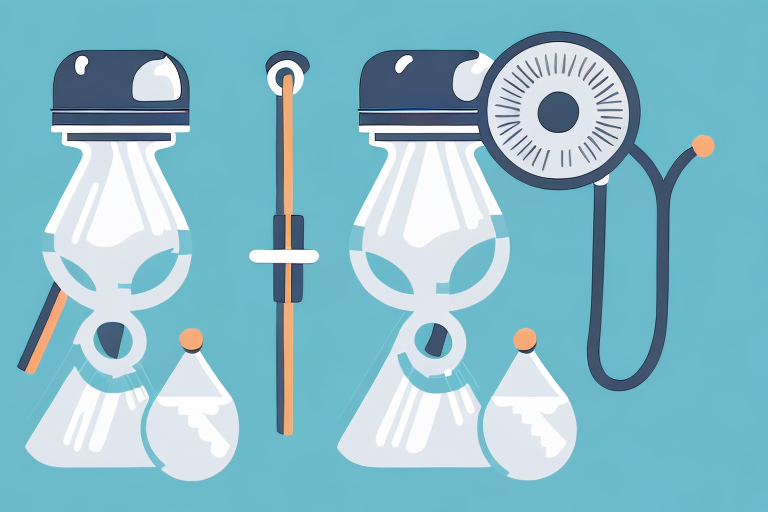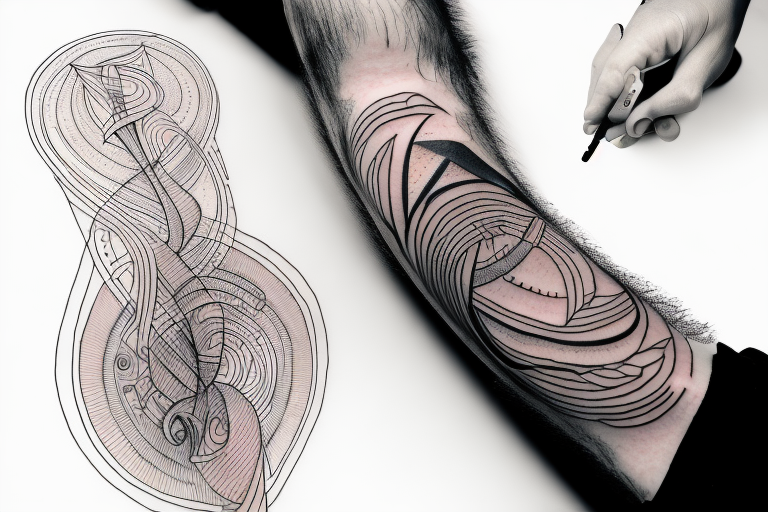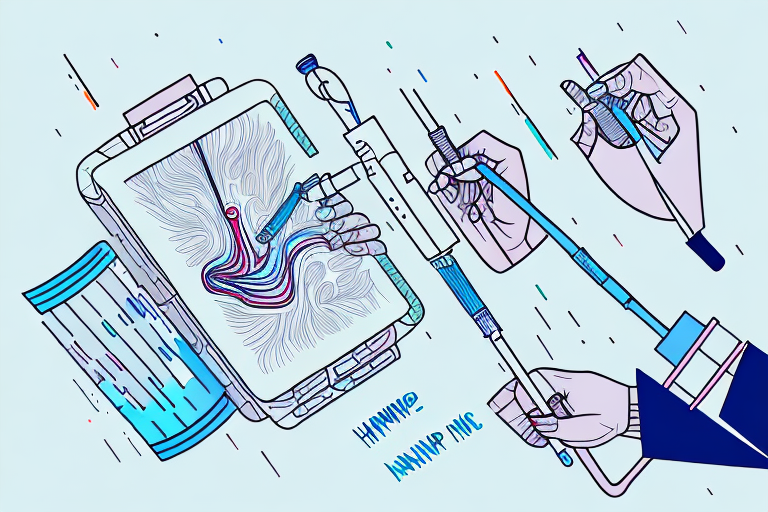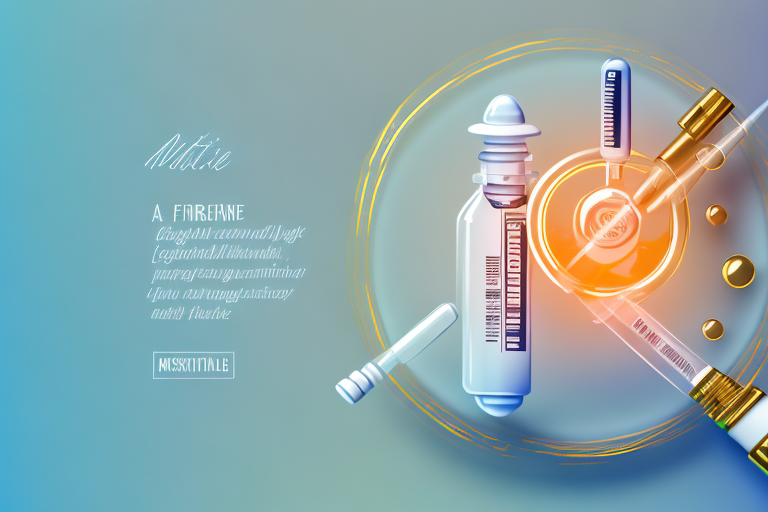How IV Therapy Can Help You Recover Faster After Surgery
Surgery can be a stressful time, but recovery can be equally trying. Pain, inflammation, and a weakened immune system can make it difficult to return to your daily routine. Luckily, there is a solution that may help speed up your recovery process - intravenous (IV) therapy. In this article, we’ll explore how IV therapy works, the benefits it can provide, and how to determine if this treatment is right for you.

Understanding IV Therapy
What is IV Therapy?
IV therapy is a medical technique that involves the delivery of fluids, vitamins, minerals, and other beneficial substances directly into the bloodstream through a small catheter. This method bypasses the digestive system, allowing for immediate absorption and distribution of nutrients to the body’s tissues and organs.
The use of IV therapy has become increasingly popular due to its ability to provide quick and effective results. This is especially true for patients who have difficulty absorbing nutrients through their digestive system, such as those with inflammatory bowel disease or other gastrointestinal disorders.
IV therapy is also commonly used to treat dehydration, a condition that occurs when the body loses more fluids than it takes in. This can be caused by a variety of factors, such as excessive sweating, vomiting, or diarrhea.
How Does IV Therapy Work?
The infusion process typically takes 30-60 minutes, during which time you can relax comfortably. The fluids and nutrients are delivered into your bloodstream through a small tube that’s placed into a vein in your arm. The solution is tailored to your individual needs based on a consultation with your healthcare provider.
The benefits of IV therapy are numerous. By delivering nutrients directly into the bloodstream, IV therapy can help to improve energy levels, boost immune function, and enhance overall health and wellness. IV therapy can also be used to treat a variety of medical conditions, such as chronic fatigue syndrome, fibromyalgia, and even cancer.
IV therapy is generally considered safe and well-tolerated, although there are some potential risks and side effects to be aware of. These may include infection, vein irritation, and allergic reactions. It’s important to discuss the risks and benefits of IV therapy with your healthcare provider before undergoing treatment.
In conclusion, IV therapy is a valuable medical technique that can provide numerous benefits for patients. Whether you’re looking to improve your overall health and wellness or treat a specific medical condition, IV therapy may be an effective option to consider.
Benefits of IV Therapy for Post-Surgery Recovery
Undergoing surgery can be a daunting experience, and the recovery process can be challenging. However, IV therapy can provide numerous benefits for post-surgery recovery. In addition to the benefits listed above, here are some additional reasons why IV therapy can be an effective tool for promoting healing:
Reduced Risk of Dehydration
Dehydration can be a common issue for patients recovering from surgery, especially if they are experiencing nausea or vomiting. IV therapy can help prevent dehydration by providing the body with fluids and electrolytes. This can help patients feel more energized and reduce the risk of complications.
Customizable Treatment Plans
IV therapy can be tailored to meet the unique needs of each patient. Depending on the type of surgery and the individual's health status, different nutrients and supplements may be recommended. IV therapy providers can work with patients to create customized treatment plans that address their specific needs.
Improved Energy Levels
Recovering from surgery can be exhausting, and many patients may feel fatigued or run down. IV therapy can help boost energy levels by providing the body with essential nutrients such as B vitamins and magnesium. This can help patients feel more alert and focused, which can be especially important for those who are returning to work or other daily activities.
Convenient and Efficient
IV therapy can be administered in a variety of settings, including hospitals, clinics, and even in the comfort of a patient's own home. This can make it a convenient and efficient option for post-surgery recovery. Additionally, IV therapy sessions typically take less than an hour to complete, allowing patients to quickly return to their daily routine.
Overall, IV therapy can be a valuable tool for promoting healing and reducing the risk of complications during post-surgery recovery. If you or a loved one is recovering from surgery, consider speaking with a healthcare provider about the potential benefits of IV therapy.
Types of IV Therapy for Post-Surgery Recovery
Undergoing surgery can be a stressful and traumatic experience for the body. In addition to the physical trauma of the procedure itself, the body must also work to repair and heal the affected area. IV therapy can be an effective way to support the body’s natural healing processes and aid in post-surgery recovery. Here are some of the most common types of IV therapy used for post-surgery recovery:
Hydration Therapy
Dehydration is a common side effect of surgery, as the body loses fluids during the procedure. This can lead to a range of complications, including constipation, fatigue, and difficulty moving. IV hydration therapy provides a quick and efficient way to replenish fluids lost during surgery and help prevent complications. By delivering fluids directly into the bloodstream, IV hydration therapy can help the body rehydrate more quickly than drinking fluids alone.
Vitamin and Mineral Infusions
IV therapy can provide a concentrated dose of essential vitamins and minerals that are critical for the recovery process. Infusions may include nutrients such as vitamin C, magnesium, and B vitamins that support overall health and wellness. These nutrients can help boost the immune system, reduce inflammation, and aid in tissue repair. IV vitamin and mineral infusions can also be customized to meet the specific needs of each patient, based on their individual health concerns and recovery goals.
Amino Acid Therapy
Amino acids are the building blocks of protein and are essential for muscle recovery and growth. IV therapy can provide a focused dose of amino acids to aid in the recovery process. Amino acid therapy can help promote healing and tissue repair, reduce inflammation, and improve overall muscle function. This can be especially beneficial for patients who have undergone orthopedic surgery or other procedures that require significant muscle recovery.
Antioxidant Therapy
Antioxidants are compounds that help protect the body from damage caused by free radicals, which are unstable molecules that can cause oxidative stress and inflammation. IV therapy can provide a concentrated dose of antioxidants such as glutathione and vitamin C to help support the body’s natural healing processes. Antioxidant therapy can help reduce inflammation, improve immune function, and promote overall wellness.
Overall, IV therapy can be an effective way to support the body’s natural healing processes and aid in post-surgery recovery. By providing a targeted dose of nutrients and fluids directly into the bloodstream, IV therapy can help patients recover more quickly and with fewer complications. If you are considering IV therapy for post-surgery recovery, be sure to consult with a qualified healthcare provider to determine the best course of treatment for your individual needs.
How to Determine if IV Therapy is Right for You
IV therapy, also known as intravenous therapy, is a medical treatment that delivers fluids, medications, and nutrients directly into a patient’s bloodstream through a vein. This method of treatment can be beneficial for a variety of conditions, including dehydration, nutrient deficiencies, and chronic illnesses.
Consult with Your Surgeon
Before considering IV therapy, it’s important to consult with your surgeon or healthcare provider to determine if it’s safe and appropriate for your individual needs. They can help assess your overall health and provide recommendations for treatment.
During your consultation, your healthcare provider may ask you questions about your medical history, current medications, and any allergies you may have. They may also perform a physical exam to assess your veins and overall health.
Assess Your Individual Needs
When considering IV therapy, it’s important to assess your individual needs and goals for recovery. If you’re experiencing pain, inflammation, or difficulty absorbing nutrients, IV therapy may be appropriate for you.
IV therapy can be used to deliver a variety of medications and nutrients, including vitamins, minerals, and amino acids. This can be particularly beneficial for patients who have difficulty absorbing these nutrients through oral supplements.
Consider Your Overall Health
IV therapy is generally safe for most patients, but it’s important to consider any underlying health conditions or allergies that may impact treatment. Your healthcare provider can help determine if IV therapy is safe for you.
If you have a history of heart disease, kidney problems, or liver disease, for example, IV therapy may not be appropriate for you. Similarly, if you have a known allergy to any of the medications or nutrients commonly used in IV therapy, your healthcare provider may recommend an alternative treatment.
Overall, IV therapy can be a safe and effective way to deliver nutrients and medications directly into your bloodstream. By consulting with your healthcare provider and assessing your individual needs, you can determine if IV therapy is right for you.
Risks and Side Effects of IV Therapy
IV therapy is a common medical procedure used to deliver fluids, medications, and nutrients directly into a patient’s bloodstream. While it is generally considered safe, there are some risks and side effects associated with the procedure.
Infection
One of the main risks of IV therapy is infection. This can occur when bacteria or other harmful microorganisms are introduced into the bloodstream through the IV catheter. However, healthcare providers take steps to minimize this risk by using sterile techniques when inserting the catheter and changing dressings regularly. Patients are also monitored closely for signs of infection, such as fever, redness, or swelling around the catheter site.
Allergic Reactions
Another potential risk of IV therapy is an allergic reaction to the substances being infused. This can occur if the patient is allergic to one of the medications or fluids being administered. Symptoms of an allergic reaction may include itching, hives, difficulty breathing, or swelling of the face, lips, tongue, or throat. However, allergic reactions are rare, and healthcare providers will closely monitor patients for any signs of a reaction.
Overhydration
Infusing too much fluid during IV therapy can lead to overhydration, which can cause complications such as electrolyte imbalances, swelling, and shortness of breath. However, healthcare providers will carefully monitor the infusion rate to ensure that patients receive the appropriate amount of fluids. Patients may also be advised to limit their fluid intake before and after the procedure to reduce the risk of overhydration.
In conclusion, while IV therapy is generally considered safe, it is important to be aware of the potential risks and side effects. Patients should discuss any concerns they have with their healthcare provider before undergoing the procedure.
What to Expect During an IV Therapy Session
IV therapy is a medical treatment that involves the administration of fluids, vitamins, minerals, and other nutrients directly into the bloodstream through an intravenous catheter. This treatment is becoming increasingly popular because it provides quick and effective results for a variety of health conditions.
Preparing for Your Appointment
Prior to your appointment, it is important to communicate with your healthcare provider about any medical conditions, medications, or allergies you may have. Your healthcare provider will assess your individual needs and provide instructions for preparation. This may include fasting or limiting certain foods or medications before the procedure. It is important to follow these instructions carefully to ensure the best possible outcome.
In addition, it is recommended to wear comfortable clothing and bring a book or other form of entertainment to pass the time during the infusion.
The IV Therapy Process
During the procedure, you will sit or lie comfortably while the infusion takes place. The catheter will be placed in a vein in your arm, and the solution will be infused over a period of 30-60 minutes. The length of the infusion will depend on the type of solution being administered and the individual needs of the patient.
It is common to experience a warm sensation or slight discomfort during the infusion, but this should subside quickly. Your healthcare provider will monitor you throughout the procedure to ensure your safety and comfort.
Post-Session Care and Follow-Up
After the procedure, you will be monitored for any side effects or complications. It is important to follow any instructions provided by your healthcare provider for post-session care, such as drinking plenty of fluids or avoiding certain activities.
Your healthcare provider may also provide instructions for follow-up care and additional sessions if necessary. It is important to attend all follow-up appointments to ensure the best possible outcome and to address any concerns or questions you may have.
Overall, IV therapy is a safe and effective treatment option for a variety of health conditions. By following the instructions provided by your healthcare provider and attending all follow-up appointments, you can experience the full benefits of this treatment.
Alternatives to IV Therapy for Post-Surgery Recovery
Recovering from surgery can be a challenging process, but there are a variety of options available to aid in your recovery. While IV therapy is a common choice, there are alternative options that can provide similar benefits. Here are a few alternatives to consider:
Oral Supplements
Oral supplements can be a great alternative to IV therapy for post-surgery recovery. While they may not be as concentrated or as quickly absorbed as IV therapy, they can still provide the necessary nutrients to aid in the recovery process. It’s important to discuss supplementation with your healthcare provider to determine what’s best for you. They can recommend specific supplements and dosages based on your individual needs.
Some common supplements that may be recommended for post-surgery recovery include:
- Protein supplements: Protein is essential for repairing and building muscle tissue, which can be especially important after surgery.
- Vitamin C: This vitamin is important for wound healing and can help boost the immune system.
- Vitamin D: Vitamin D is essential for bone health and can help with overall recovery.
Physical Therapy
Physical therapy is another alternative to IV therapy that can aid in the recovery process. Physical therapy can help improve mobility and strength after surgery, which can be especially important for those who have undergone orthopedic procedures. Your physical therapist can create a customized plan to help you regain strength and mobility in a safe and effective way.
Some common physical therapy exercises that may be recommended after surgery include:
- Range of motion exercises: These exercises help improve joint flexibility and prevent stiffness.
- Strengthening exercises: These exercises help build muscle strength and improve overall mobility.
- Balance exercises: These exercises help improve stability and prevent falls, which can be especially important for older adults.
Holistic Approaches
For some patients, holistic approaches such as acupuncture or massage therapy may be helpful in the recovery process. These alternative therapies can help reduce pain and inflammation, promote relaxation, and improve overall well-being. It’s important to consult with your healthcare provider and get clearance before trying any new treatments.
Some common holistic approaches that may be recommended for post-surgery recovery include:
- Acupuncture: This ancient Chinese practice involves the insertion of thin needles into specific points on the body to promote healing and reduce pain.
- Massage therapy: This hands-on therapy can help reduce muscle tension, improve circulation, and promote relaxation.
- Meditation: This practice involves focusing the mind on a specific object, thought, or activity to promote relaxation and reduce stress.
Overall, there are a variety of alternatives to IV therapy that can aid in post-surgery recovery. It’s important to discuss your options with your healthcare provider to determine what’s best for you. With the right approach, you can make a full and speedy recovery.
Conclusion
Overall, IV therapy can provide a quick and efficient means of recovering from surgery. By infusing essential nutrients and fluids directly into your bloodstream, IV therapy can help reduce pain, inflammation, and promote a faster healing process. If you think IV therapy may be right for you, discuss this treatment option with your healthcare provider to determine if it’s appropriate for your individual needs.
© 2024 IV Fluids | All Rights Reserved | Powered By OMG Marketing











